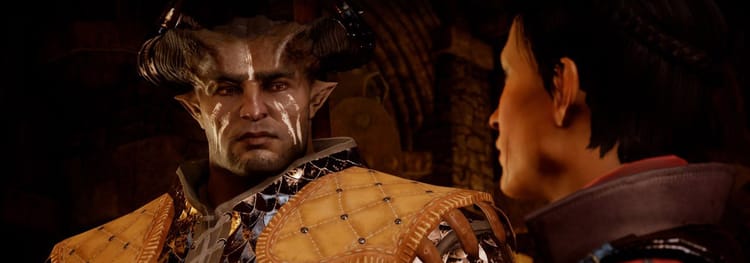Get a Grip

Last month, a three-year-old boy in Australia named Noah Jefferies figured out a new way to win a claw game. Apparently frustrated at the difficulty of snatching on to a plush toy of Spongebob Squarepants, he gave up on the controller and climbed through the retrieval gate, up through the chute where the claw deposits its gifts, and finally dropped into the pile of plush rewards. While his mother was understandably panicked, the first report of this incident in The Herald Son notes that, for his part, Noah celebrated his victory with a Robin Hood streak, dispensing toys to a small group of children gathered around the machine before he was excised 10 minutes later by an emergency fire brigade.
“I ran over to check and he was passing toys out and eating some of the lollies,” his mother told the paper. Despite the fact that he may have narrowly avoided suffocation, all Noah wanted to do afterward was dive back in: “He wanted to go back in to get the lollies.”
This all leads to an important question: Have you ever actually won a claw game? Not heard stories about winning one, not almost won one, but actually pulled some fuzzy or mildly expensive object with a crane all the way toward the chute—all the way toward victory? I remember one instance of victory, buried somewhere deep in the shadowy recesses of childhood. I have no idea where I was living at the time, or even whose birthday I was attending, though I remember he had blonde hair. There were a lot of restaurants that thrilled the screaming children like me clamoring for more prizes and money—with the piles of bright color gleaming out the bottom of these crystal boxes.
Are gamers actually the ones with the wrong attitude toward these kinds of challenges?
I won my prize—a small, plush-covered slinky with a head and tail made to look like I tiger that I promptly added to my collection of things named Hobbes—through no ability of my own. I didn’t even know to aim for it; just pressed the directional buttons and blindly slammed down on the “grab” button over a particularly ripe pile of fuzz. As proud as I was, I also knew that dumb luck had helped me manipulate the claw itself, for the tiny, tightly wound bands of the slinky had coiled themselves around the limp-wristed grip of the claw so tightly that, no matter how weak the grip, it was still mine.
Then I hear about Noah. He may not be the first child to figure out how to beat the claw (the Huffington Post identifies similar incidents in Wisconsin, Minnesota, and South Carolina), but he’s literally the poster child of this new rebellion. Reading these stories, it’s hard not to be reminded of that feeling of a frustration so consuming it makes you want to throw your controller at the television screen, to hurl your computer out the window after what must be the thousandth crack at a level of Super Meat Boy. Noah didn’t get mad, though. All he seemed to care about was getting his lollipop. Are gamers actually the ones with the wrong attitude toward these kinds of challenges?
Claw games bear a connection with other games of an almost legendary difficulty—arcade games whose later levels are so chock full of ascending values of difficulty that playing them becomes impossible. The 256th level of Dig Dug or Pac-Man where the screen is so flooded with enemies that movement itself is precluded. Like arcade games, the claw machine also originates from the carnival—strange, dirty places like Coney Island and the Jersey Shore. Games there weren’t meant to be won, weren’t even meant to be fair. Rules didn’t matter when a man could swallow a sword or hammer nails up his own nose, so why should they matter to the games?
Does difficulty satisfy some primal urge to always be reaching for the giant teddy bear, the smugly grinning Spongebob, never to catch it? Today, more than any other time in recent American history, gambling is reaching beyond a symbolic attachment to our political and economic values. A recent article in Salon shows that, feeling desperate, many states have begun to legalize more forms of gambling in the hope of revitalizing their economies. The difficulty of these games, or the insane attraction to their systems of pure chance, bears more than a fleeting resemblance to a tensely contested status quo. How do you actually win the prize in a claw game?
/ / /
There are three events in a game of claw: aim, drop, and carry. So too there are three levels on which the game itself operates. The first is in the bare efficiency and abstract promise of math. I came to this from a more basic problem—the term “difficulty” itself implies a degree of player skill; and the question, politically and culturally, for these games is whether they can actually be defined as games of skill. Like a lot of legal questions, the nuance here in definition blossoms out into overwhelming complexity.
Not sure how to proceed, I called the mathematical economist Gil Skillman, a professor at Wesleyan University who specializes in game theory. There is a way to test a game to see if it’s a game of skill or a game of chance, but as Skillman explained to me, it can be “quick and dirty.” A game of chance is, essentially, any game in which the probability of success is completely independent of player ability. To become a game of skill, two new conditions have to be met: “First, the identity of the player has to somehow be an input in the probability. And second, that input can’t just be ‘superior causability’ or superior luck. It has to be actual skill.”
There are a lot of fine points here, but ultimately it comes down to the fact that a skill is anything that you can actually learn and improve upon through repetition or practice, the sort of repetition that comes so naturally to gamers, athletes, and musicians. Difficulty, he continues, is then “nothing more magical” than a simple equation between two players, using each one’s skill to determine their probability of success. It seems surprisingly concrete. Difficulty becomes more complex, then, as more variables (call them “players” in a game of, say, basketball) are introduced, and “there’s more of a role for chance to have an effect. Therefore you can understand skill as the relative ability to overcome the effects of chance.” As a game evolves from the click of a lever to the flip of a card, “more and more people can finally impose order over chaos, over entropy.”

This is not terribly complicated for something like a slot machine or claw game where the only other player is, in effect, chance. If you look as its bare level of intrinsic possibilities, the extensive form game tree won’t extend very far for a crane machine. But this does give rise to the notion of fair play, something Skillman can only define mathematically as “holding skill levels equal; then there should be an equal probability to succeed.”
“What’s your working definition of a game in this setting?” I ask.
“Oh,” he chuckles. “A situation of strategic interaction.” A brief pause, then. “Where my outcomes depend on what other people do. And other people’s outcomes depend on what I do. So a special case of a game in that larger sense is games like videogames. But we can also treat competition in an industry, among firms, as a game.”
There have been many noble attempts to define the term “game” for the burgeoning field of game studies. Changing that isn’t really my concern here. But one thing sticks out even as we continue to speak: What about fun? “Well, you’re getting into really complex questions of psychology here,” he responds.
The day before I had asked Alison Gopnik, a developmental psychologist at the University of California, Berkeley, the same question. “I think games do two things,” she explains.
On one level they’re these sort of narrative machines. I’m always struck by these stories at the Olympics—these sports that any of us know nothing about. And then for two weeks there are all these stories about who won and who lost. And I think part of that is there’s a very fine line in people’s understanding of causality between things that are under your control, things that you can cause, and things that are just random fate out in the universe. I think if you just watched something happen randomly that would be very boring. And if you went to try to do something, and each time you tried to do it you succeeded, that would be very boring. And what great games do is they try to find this kind of sweet spot where you’re never quite sure is this accomplishment the result of fate, or is this accomplishment the result of skill and persistence?
The allure of gambling is how far it swings in the direction of chance—the idea of “winning” is so statistically irrelevant, so highly improbable, that you can only chalk it up to God taking your hand, or the claw itself, and steering it toward victory. Still, this leaves alone the question of fairness—the sense that any game you play should make its rules clear enough for you to figure out how to master them.
Describing the flaws in Journey developer thatgamecompany’s first project, Ian Bogost writes that its “theory of flow in games hadn’t taken account of the interface and environmental elements, but only the game’s system.” Videogames, like economic game theory, operate on a level of abstract form. Applying these principles in the unpredictable and often seemingly irrational arena of human behavior necessarily departs from them.
There are some concrete ways to assess “skill.” The relative height and athleticism of Lebron James compared to myself can give anyone a solid image of who will win in a game of basketball. But I imagine these are few and far between.
Yet while we call a videogame “fair,” we usually refer to an economic system as “just.” Skillman explains this is exactly the problem facing education and redistributive equality in a country like the United States—the tension of judging victory (call it “success” in laymen’s terms) as an indication of one’s innate abilities versus their acquired skills. “You’d expect people with higher skill to have higher abilities,” he explains. “So what part of your success and the success you’re going to have in life,” he asks me, “depends on the fact that you went to Wesleyan, and what depends on the fact that you are who you are?”
Videogames, like economic game theory, operate on a level of abstract form.
There is a feeling, every time I’m reaching for something, that I want to call out to that same force of dumb luck, the same divine intervention that coiled the slinky into the claw’s lazy and idle grip. What’s frustrating is that nobody seems to tell you what, exactly, are the rules. There’s no comfort in the clarity of Super Meat Boy saying that if you run into the wall chockfull of sharp razors, you will die. The most extreme forms of gambling—the wild games of chance where you sling a claw into the abyss with no sense of what it may ultimately hold on to, feels more true to life than any other game I remember playing.
“You realize,” Skillman reminds me as I dip off into this tangent, “that once we enter into the realm of politics—and these are political definitions—that they don’t have to make any necessary sense, right?”
/ / /
This is the second level of claw games—the one where two plus two can equal five. Gambling’s fiercest addicts, practitioners, and defenders will raise any number of defenses for their favorite games, explains Robert Jarvis, a Professor of Law at the Shepard Broad Law Center at Nova Southeastern University who has devoted much of his career to gambling law. Poker in particular is the “800 lb. gorilla in the room,” the game most ambiguously a “game of chance” given the fact that, most people recognize, it’s incredibly difficult to master.
“Every game of skill is to a certain extent a game of luck,” he says. “Whether the baseball stays in play or goes into the stands, the batter can only do so much. Babe Ruth could not hit a home run every time up, and some of his home runs weren’t home runs because the wind unfortunately blew up at just the wrong moment for him.” Conversely, every game of chance beyond flipping a coin has a certain degree of skill.
But ultimately math can’t speak to politics. “Gambling is whatever the government says it is or isn’t,” Jarvis explains. “What gambling is at any given moments is what the government, for political reasons, economic reasons, believes.”
The recent legislative fad to allow more forms of legalized gambling gives strength to its greatest advocates, but Jarvis tells me that really “both sides overstate their cause.” Gambling, he explains, has its own ABC’s—addiction, bankruptcy, and crime. “Opponents say it leads to one or all of these things,” Jarvis says, but there has been “no reputable academic study” to prove any of them. Proponents, meanwhile, highlight the benefit of economic renewal. “Look at Atlantic City,” he explains. “Sure it revitalized something, but it only revitalized three blocks of the city!”
This, he concludes, is “the reality of gambling. Things are better off, but they are only somewhat better off than originally so.”
/ / /
The third level goes back to the machine itself.
I ask Jarvis about how claw games can be broken, rigged, or otherwise manipulated against the player, and, as someone whose closest brush with gambling involves these games, the list shocks me. “Difficulty” in the purest sense of the word is usually set by changing the length of time and number of attempts granted to the player for each quarter. Many machines also have settings to adjust the strength and duration of the claw’s grip, queuing the claw to drop heavier items before they have a chance to make it to the chute. Stores and arcades can pack objects so tightly that the force of the claw arm is too weak. And like their adult counterpart, slot machines, they can be fixed to only pay out at certain intervals—say every fourth or fifth attempt—to maintain a profitable ratio.
And isn’t this ultimately what the furor over the housing crisis and the great recession has been about?
As he explains this in his jovial voice, I can’t help but get angry. For myself, the perpetual loser of claw games, and for everybody else who enters into any game with the sincere hope of winning. Why else would you want to play a game, after all? A definition of “fairness” that is closely monitored in any form of institutionalized gambling is the player’s understanding of the game’s internal design. That is to say, you should be able to know your actual odds of winning before you go lose all your money.
The thing is, most states acknowledge that claw games basically are a form of gambling—and a particularly stilted one at that, Jarvis explains. But they have specific statutes now generally known as Chuck E. Cheese laws that say even though we know this is gambling, we’re going to allow it. Named after the popular restaurant chain that first popularized these games outside of the traditional space of arcades, the laws accept the unregulated games as part of a food-driven business that therefore makes them harmless.
Every state, Jarvis tells me, has some form of gambling. The question is more one of visibility. “We don’t care when kids are playing these games,” he says. “We think it’s cute.” But this is still a game of chance, I tell him, and a pretty crappy one at that. “Well, we get more concerned when adults play these games because the stakes are higher—then they are treating them like slot machines. But you’re right, any time you authorize a game that isn’t a game of skill, you are choosing to authorize gambling. You’re just choosing not to call it gambling.”
The only thing that keeps casinos more heavily regulated is the fact that they’re a gaming business, rather than strictly a restaurant like Chuck E. Cheese’s. “You don’t see these cases going to court,” he explains, “because arcades just open up and close overnight.” They tend to stay in one place until a sheriff or religious group tries to drive them out of town, at which point they roll over to the next mall or movie theater.
But here is the bizarre crux of Jarvis’s story: the moral and political ambiguity of gambling as an economically potent form of gamification. “The people who are pro-gambling will argue quite passionately that, as long as you have a stock market, you will have the largest casino in the world run and regulated by the Fed.” This debate has reached a fever pitch in recent years, when “people found great hypocrisy with George Bush, a conservative man who found God, and yet he’s telling people they should take their social security and throw it into this market!”
And isn’t this ultimately what the furor over the housing crisis and the great recession has been about? Aren’t the angry cries of occupiers just a plea to change the rules, charging, like Noah did, at the face of the glass to hand more toys and more rewards to more people?
After hearing this, I can’t help but stand with the children who said “fuck it” and dove into the belly of the beast.
Illustration by Mark Pieterson. See the full image.



